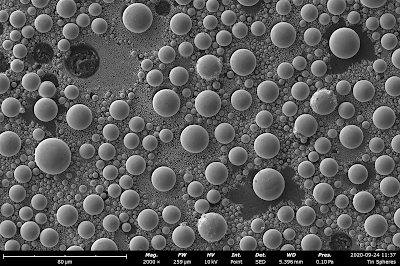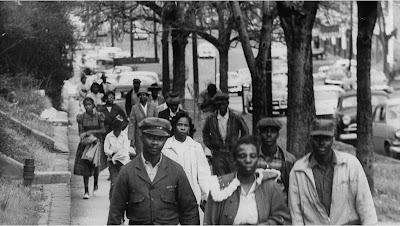

For the past six months or so I've been wrestling with how to reformulate my own thinking about the nature of the social world -- the nature of "social reality" (link). I've come to realize that the position I've defended for years -- ontological individualism -- is still too dependent on the view of "social entities sitting on top of individual actors", which is no longer convincing to me. And I've reformulated what I have to say about "actor-centered sociology" and "microfoundations" accordingly. I am now more satisfied with the position I've come to -- a diachronic view of intertwined and mutually influencing processes at the social level and the individual-actor level, and an associated view that suggests that both social arrangements and features of individual agency are fluid and "fluxy". Here are two key statements from "Rethinking Ontological Individualism" in its final draft:
Actors and structures are linked in inseparable loops of mutual influence over time, with both actors and structures dependent on the current ensemble of “actors-within-structures” within which they have developed, changed, and persisted. The social world is thus inherently indeterminate, reflecting unpredictable changes in all its elements over time.
...
This view has important ontological implications. For one thing, it implies that neither actors nor structures have “essential natures” or fixed and unchanging properties. Rather, the properties of social structures are influenced by the past and present actions and thoughts of actors and the prior characteristics of structures; while the mental characteristics of present actors are shaped by the ambient social arrangements within which they develop. (There is a biological precondition: human beings must be the kinds of “cognitive-practical machines” that can embody very extensive change; Gibbard 1990.) Further, actors are influenced by ambient structures (external causes); but a given generation of actors is capable of genuine innovation and creativity (internal causes). Susan B. Anthony was influenced by her suffragist predecessors and contemporaries, but she also brought her own innovative thinking to the struggle for full rights of citizenship for women in 1872. And likewise, structures are modified by generations of actors (external causes), but structures also create opportunities for structural innovation (internal causes).
What is striking to me now that this process of exploration and reformulation has come to something like a conclusion is how much the resulting position sounds like a version of "process metaphysics" -- the idea that processes of change rather than fixed underlying particles should be the fundamental ontological category. (The images above are selected to illustrate the two metaphysical perspectives: the orderly composition of a metal from its constituent atoms (substance metaphysics) and the contingent and entangled creation of a social movement (process metaphysics).) Process metaphysics is distinctly a minority position in analytical philosophy today, so it is striking to me that some of the basic intuitions of that view developed organically out of a consideration of how social structures, institutions, and actors interact to constitute the social world -- "social reality". I didn't begin with the premises of process metaphysics, but rather developed a conception that bore important similarities to process metaphysics.
What is process philosophy? Consider the opening sentences of Johanna Seibt’s treatment of process philosophy in the Stanford Encyclopedia of Philosophy:
Process philosophy is based on the premise that being is dynamic and that the dynamic nature of being should be the primary focus of any comprehensive philosophical account of reality and our place within it. Even though we experience our world and ourselves as continuously changing, Western metaphysics has long been obsessed with describing reality as an assembly of static individuals whose dynamic features are either taken to be mere appearances or ontologically secondary and derivative. For process philosophers the adventure of philosophy begins with a set of problems that traditional metaphysics marginalizes or even sidesteps altogether: what is dynamicity or becoming—if it is the way we experience reality, how should we interpret this metaphysically? (link)
Substitute "the social world" for "being" and "reality" in this text and you have a statement about social ontology that is very similar to the reformulation I propose in reconsidering ontological individualism.Seibt notes that process philosophy has important affinities with American pragmatism (as well as ancient Greek philosophy and continental philosophy). George Herbert Mead offers a particularly clear example in his theory of the self in Mind, Self, and Society (link). Here Mead takes a position on the nature of the self -- the "me" -- that is broadly suggestive of the premises of process philosophy:
Our contention is that mind can never find expression, and could never have come into existence at all, except in terms of a social environment; that an organized set or pattern of social relations and interactions (especially those of communication by means of gestures functioning as significant symbols and thus creating a universe of discourse) is necessarily presupposed by it and involved in its nature. (222)
The self is not a "substance", but rather a something in a continual process of change.
Process metaphysics may be considered by contemporary philosophers of science as an implausible account of the physical world. Copper atoms are not a "process of becoming"; rather, they have a (quantum mechanical) set of properties that are fixed over time. But perhaps physics and chemistry are bad models for thinking about metaphysics in general. Significantly, philosopher of biology John Dupré argues in Processes of Life: Essays in the Philosophy of Biology and elsewhere that process metaphysics is indeed well suited to the science of biology and evolution. And, like the arguments against "social kinds" and essentialism that result from the rethinking of ontological individualism, Dupré too rejects the idea of “biological essences” (The Metaphysics of Biology: 16-17):
Normally, essential properties pertain to a thing as members of a kind for which the property provides a condition of membership, and it is widely supposed that to be the same thing over time an entity must belong to, and continue to belong to, a particular kind. As I shall discuss in the next section, however, it is widely agreed that the empirical facts of biology are not consistent with there being any such essence-determined kinds.
So perhaps we might say that process metaphysics -- whatever its virtues in application to other areas of knowledge -- offers a reasonable description of the nature of the social world (and perhaps the biological world). This in turn suggests that philosophy should exercise a reasonable degree of modesty in the generality of the theories it formulates. Perhaps there is no "general and universal" basis for philosophical metaphysics. Rather, we need to formulate different metaphysical frameworks for different areas of knowledge and experience. This would indeed constitute a philosophical position of "metaphysics naturalized". (Here are some prior reflections on the grounds of metaphysical theorizing in philosophy; link, link.)
